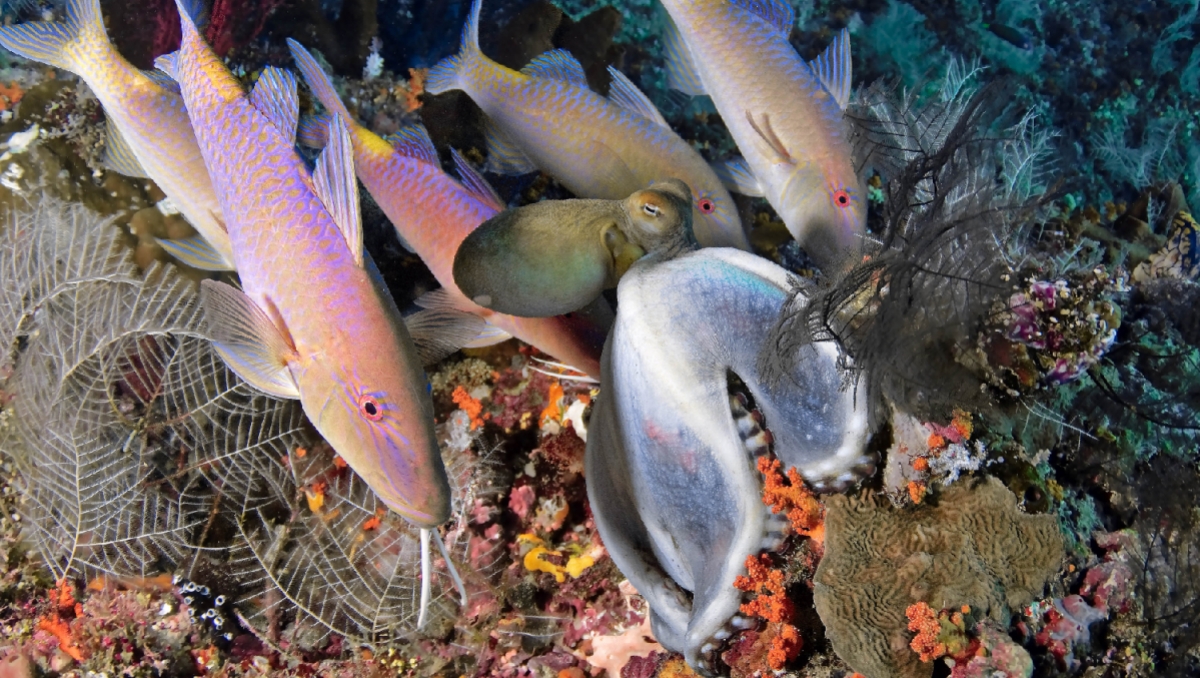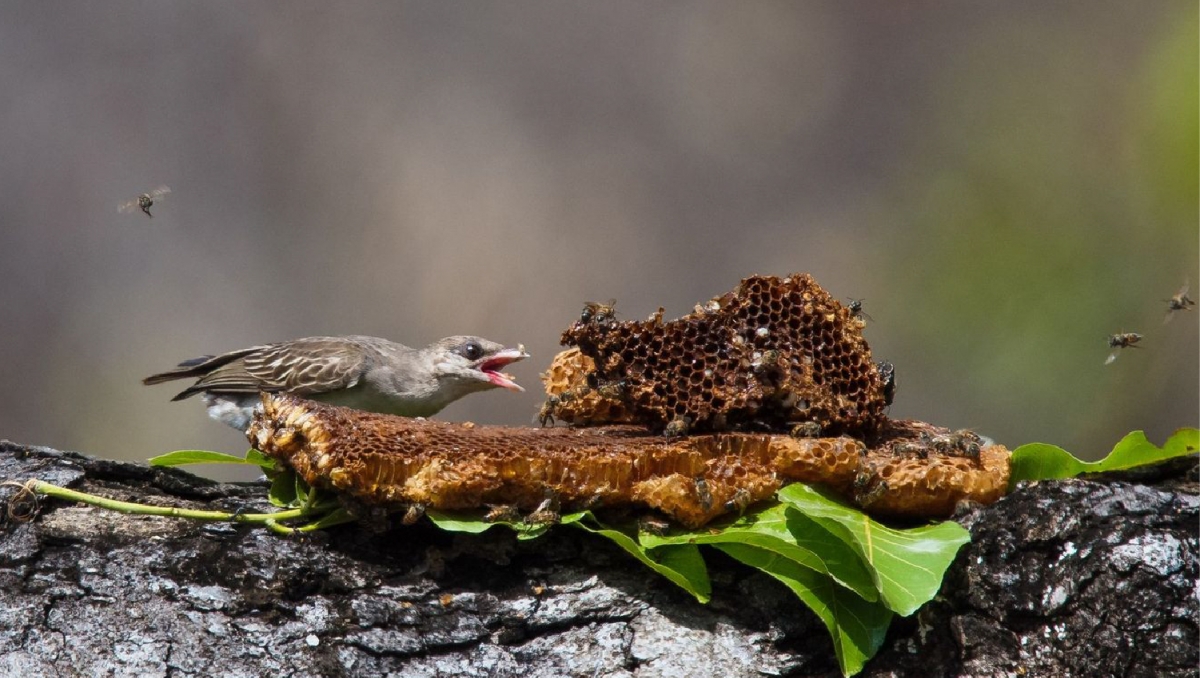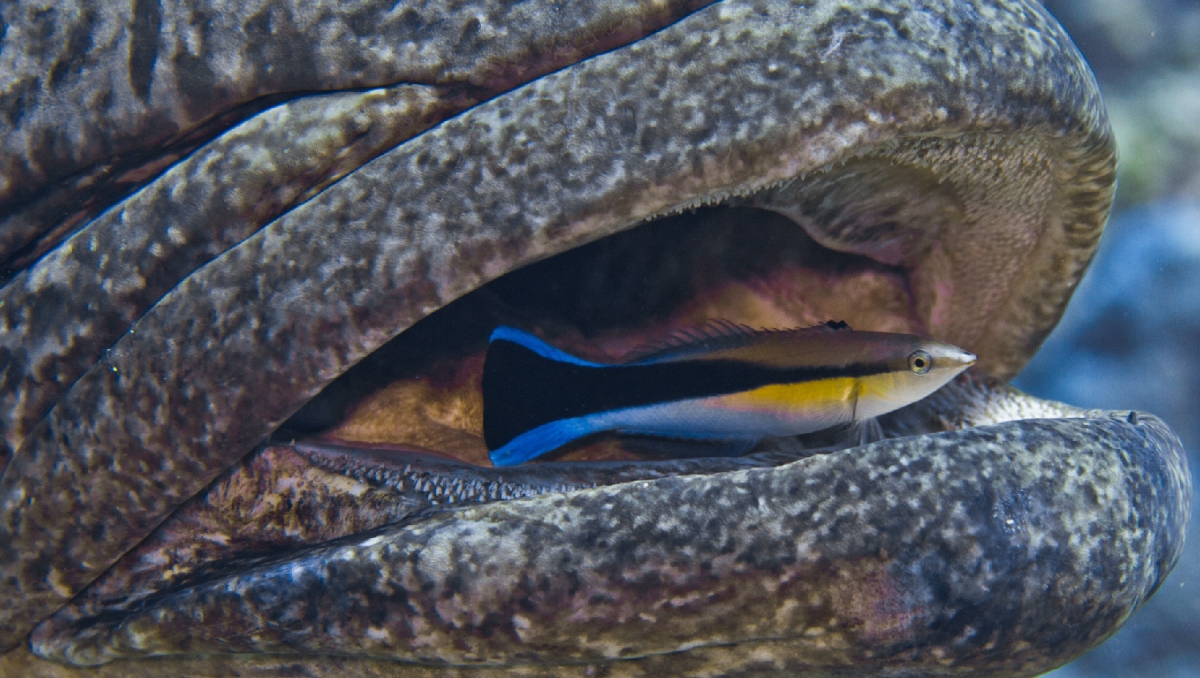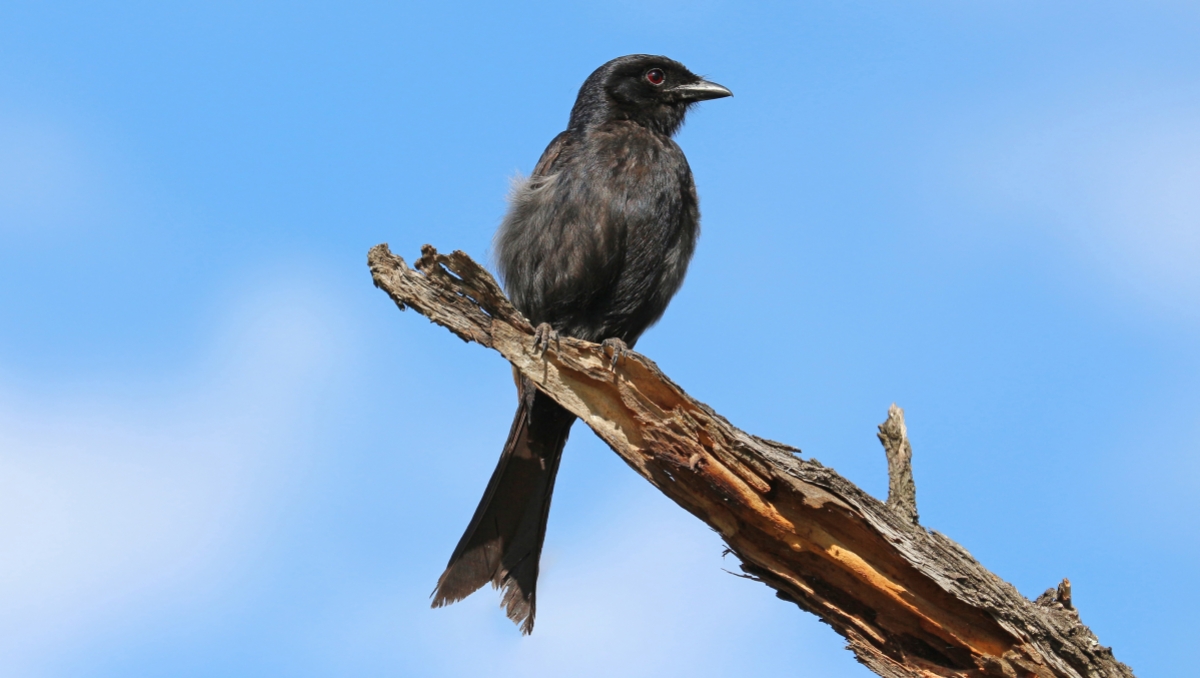Alliances among animals

The animal world is full of fascinating examples of cooperation between different animal species: from cleaner wrasses that rid larger fish of their parasites, or birds from the drongo family that warn meerkats of predators, to octopuses that hunt together with fish. But what mechanisms of perception, learning or decision-making do animals need in order to cooperate with other species for mutual benefit?
To address this question, biologist Eduardo Sampaio from the Cluster of Excellence “Collective Behaviour” at the University of Konstanz (Germany) and the Max Planck Institute for Animal Behavior teamed up with comparative psychologists Alexandra Schnell (Cambridge University; UK) and Piero Amodio (Stazione Zoologica Anton Dohrn; Italy). In their recent article in Current Biology, they explore possible cognitive foundations of cross-species social behaviour using the example of cooperative hunting in octopus and reef fish.
A new perspective on intelligence
“When octopuses and reef fish hunt together, they coordinate their attacks to outwit their prey,” explains Sampaio. The fish don't just tag along with the octopus; they play an active role by showing the octopus where the prey is hiding. The octopus then either wraps its arms around the prey to catch it or chases it out of its hiding place, thereby increasing the potential hunting success of the entire hunting party. What is more, the octopus flexibly adapts its behaviour depending on its hunting partners, and a fish that exploits the cooperation even risks being beaten up by the octopus for punishment.

“Partnerships like these challenge traditional views of intelligence and cooperation in the animal kingdom.”
Eduardo Sampaio
Delving into topics such as signal processing, role specialization and dynamic decision-making between species, Sampaio and his colleagues discuss how cross-species collaborations go beyond mere coordination. By examining the cognitive demands of these interactions, they offer a fresh perspective on the intelligence of animals that cooperate across species. “From an evolutionary perspective, social complexity, problem solving and communication do not only arise within one's own group, but can also be shaped by the need to collaborate across species boundaries,” says Sampaio.
https://www.youtube.com/watch?v=uPFswbgyHc8
Original publication: Cognition in multi-species sociality




